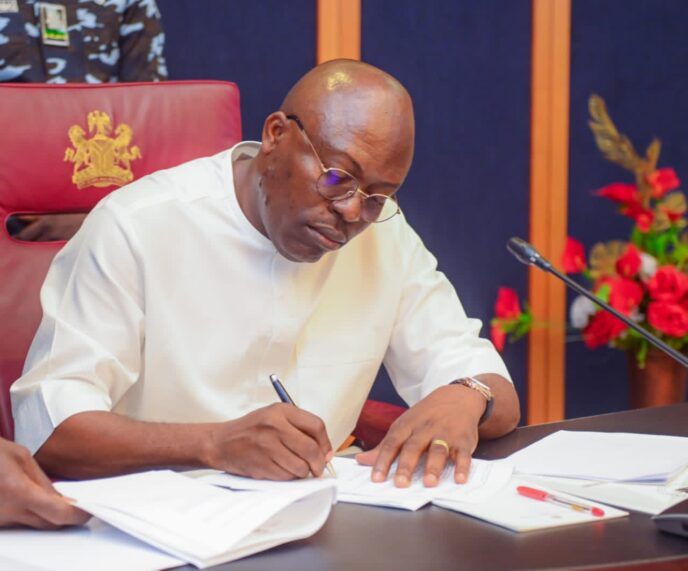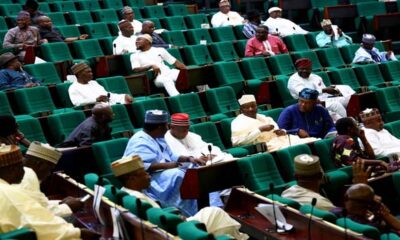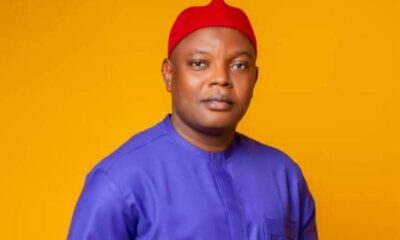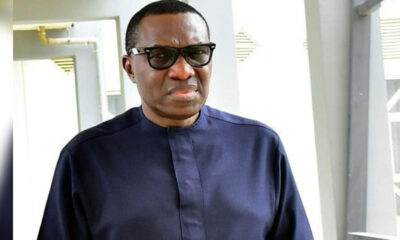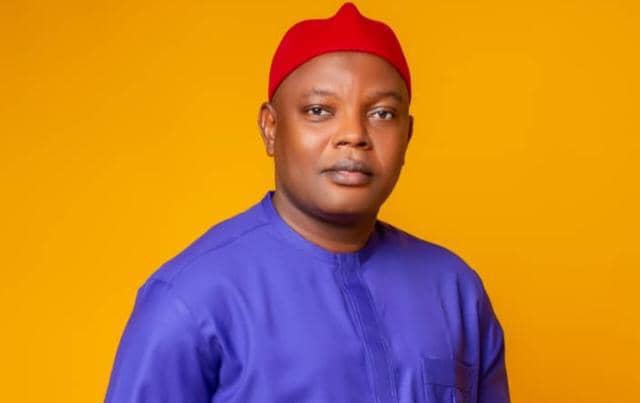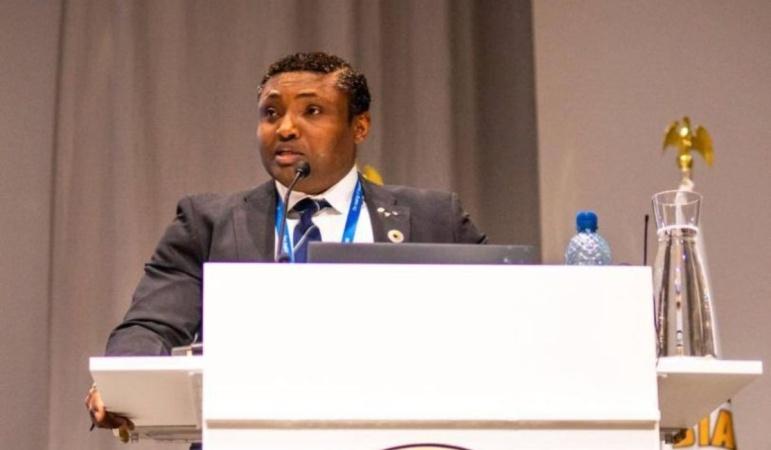Siminalayi Fubara, the governor of Rivers, claims he was pressured into signing a peace agreement with allies of Nyesom Wike.
Fubara made this statement on Wednesday at a non-denominational thanksgiving service in Port Harcourt, held in remembrance of the failed impeachment attempt against him on October 30, 2023, by lawmakers aligned with Wike.
The governor and Wike, who is the minister of the federal capital territory (FCT), have clashed over control of Rivers state’s political structure. This ongoing conflict has triggered a political crisis, conflicting court orders, and divisions within the Rivers house of assembly.
In December 2023, Fubara and Wike signed an eight-point resolution to address their dispute. The agreement, brokered at the presidential villa in Abuja after a meeting with President Bola Tinubu, included commitments to end all impeachment actions against the governor and to withdraw pending court cases.
However, despite the peace agreement, tensions in the state remain unresolved.
- ‘They Think They’re Smart’
Speaking during the thanksgiving service, the Rivers governor said Wike’s camp failed to abide by the conditions stipulated in the peace agreement initiated by the president.
Fubara said he signed the deal because of his desire to return peace to the state.
He added that after he withdrew the cases in court, Wike’s camp failed to withdraw theirs.
The Rivers governor explained that he was “ambushed” with the peace deal by Wike’s camp and not by the president who initiated the deal.
“Because we are people of peace, if there is any advantage that was taken over us, it is because of our genuine interest for peace,” Fubara said.
“The preacher said something about peace. I want to tell you that we went to Abuja and Mr President, knowing the importance of peace in Rivers state, brought out some conditions.
“We came back here to this state. First, we did everything that had to be done with those conditions.
“We went to court immediately, withdrew our matters, but they did not. And you call yourself honourable, when you cannot even obey simple instruction, and you blame it on Fubara.
“How is Fubara the problem? Fubara is not the problem! It was because we withdrew our matter, even the matter you filed, and we said we don’t want to continue: you took advantage of it, and went and got a judgment. Is it not fraud?
“I discovered that I was being ambushed, not by the person who initiated the peace, but by people who believed that they are smarter.
“But you know such smartness, no matter what you call yourself, it is still foolishness before God.
“That is why, as they said, those other things that they are looking for, to make them feel they are coming back to life, we will not do it. So, let me see how they will come to life when we don’t do it.”
He added that those who boasted that his administration would not last have failed.
“I can tell you, they said we are not going to last for one week, we are here, we have done one year plus,” he said.
“We are also doing one anniversary of their attack. They said those buccaneers will not leave as local government chairmen, today, we have the 23 local government chairmen sitting here with us.
“They said their commissioners should resign so that we will be crippled. Today, we have more than 23 commissioners.”

 BIG STORY2 days ago
BIG STORY2 days ago
 BIG STORY2 days ago
BIG STORY2 days ago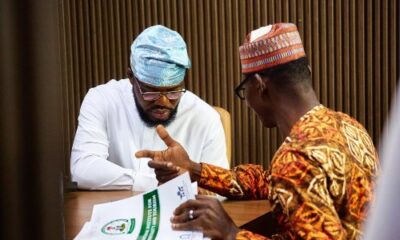
 BIG STORY1 day ago
BIG STORY1 day ago
 BIG STORY2 days ago
BIG STORY2 days ago
 BIG STORY10 hours ago
BIG STORY10 hours ago
 BIG STORY2 days ago
BIG STORY2 days ago
 BIG STORY3 days ago
BIG STORY3 days ago
 BIG STORY4 days ago
BIG STORY4 days ago




